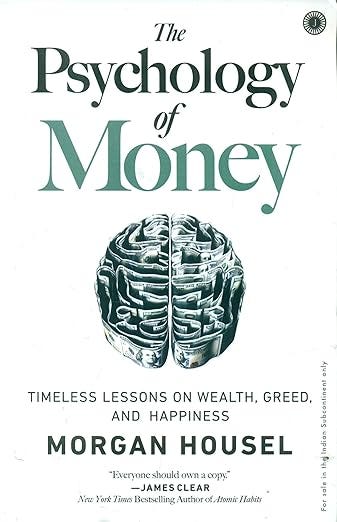The Psychology of Money by Morgan Housel explores the complex relationship people have with money, illustrating how human behavior and emotions shape financial decisions far more than technical knowledge or data. Housel presents 19 engaging stories that highlight the irrational ways people think about wealth, greed, happiness, and financial success. The book emphasizes that understanding money isn’t just about knowing financial strategies or investing principles but about mastering the psychological aspects that drive decision-making.
One of the key lessons is that financial decisions are often made based on personal experiences and emotions rather than logical calculations. People don’t always act in ways that maximize wealth—they’re influenced by biases, past traumas, or cultural views on money. Housel explains how human nature, ego, and social pressures play an outsized role in financial outcomes
📣📣 Announcement:
BigIdeas.FM subscription now integrates with Spotify and Apple Podcasts. Subscribe on the website and 🎧 listen anywhere!
Plus: The lifetime subscription is now available at 70% discount - only to the first 100 customers.The book also stresses that wealth-building is more about behavior than knowledge. Good financial habits, like saving regularly, avoiding debt, and making long-term investments, often lead to greater success than risky, high-reward strategies. Additionally, the book explores how the pursuit of happiness and financial security are deeply intertwined, but not always in the ways we expect. By understanding the psychology of money, Housel suggests, you can make wiser choices, build a more secure future, and even find contentment in your financial journey.
5 Big ideas from The Psychology of Money - Shared as QnA:
How can we define true wealth?
People often equate wealth with visible signs of luxury, but true wealth is usually hidden. It’s the savings, investments, and assets that are not on display. Housel emphasizes that wealth is built by living below your means and making long-term decisions, not by showing off.
What role do luck and risk play in financial success?
Financial outcomes are often influenced by factors beyond our control, like luck and risk. Housel argues that while we like to attribute success to skill, much of it is driven by randomness. Understanding and accepting this randomness can lead to more humility and better financial decisions.
How does compounding work, and why is it so powerful?
Housel highlights the power of compounding—not just in terms of money but in time. Small decisions made consistently over time can lead to massive growth. Compounding doesn’t just apply to investments; it also applies to skills, relationships, and habits.
Why is long-term thinking critical for building wealth?
Building wealth requires patience. People who achieve financial success often do so by sticking to their strategies over long periods. Housel warns against trying to time the market or chase quick wins, as it’s consistency and time that ultimately lead to financial success.
What is the role of psychology in financial success?
Our financial decisions are often irrational and influenced by our emotions. Fear, greed, and ego can distort how we view money, leading to poor decisions. Housel suggests that mastering the psychological aspects of money, rather than just technical financial skills, is key to long-term success.











